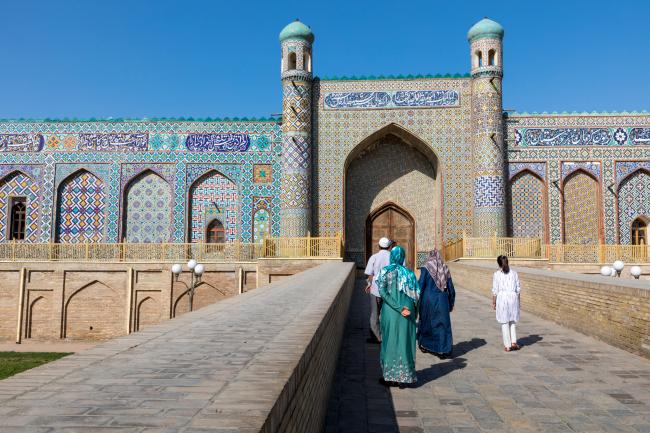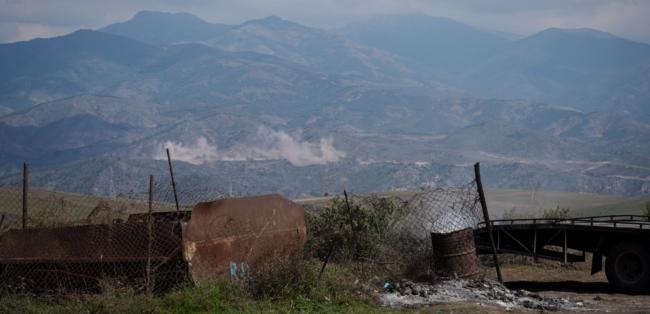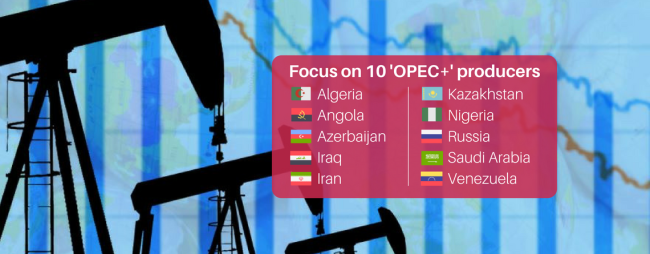Caucasus
The scene of several wars since the collapse of the USSR, the South Caucasus (Azerbaijan, Georgia and Armenia) remains an unstable zone, at the crossroads of Russian, Turkish, Iranian and European influences.
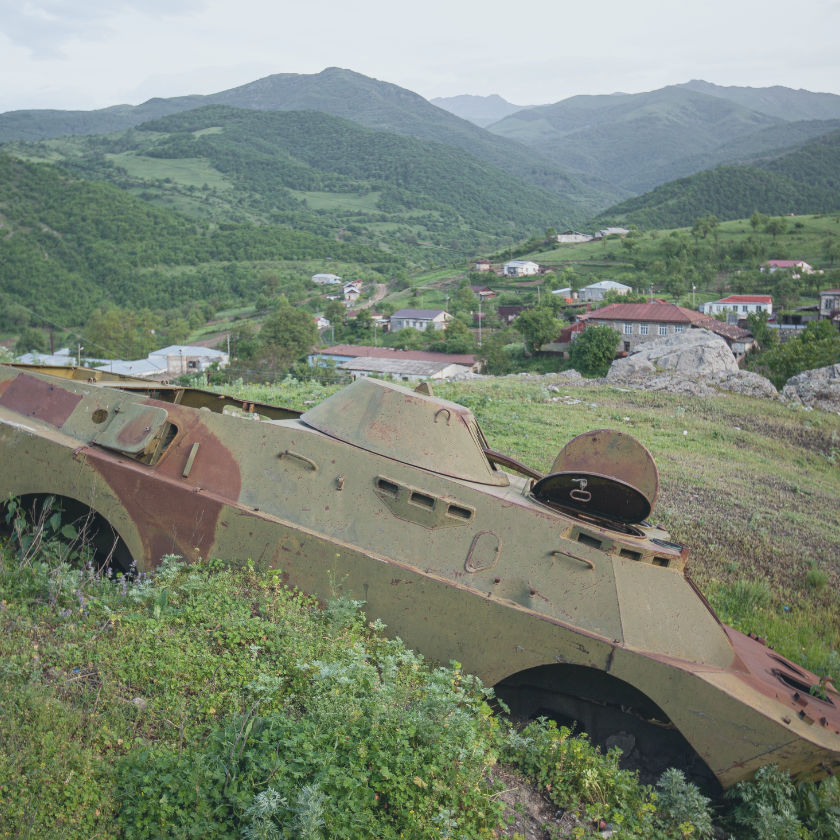
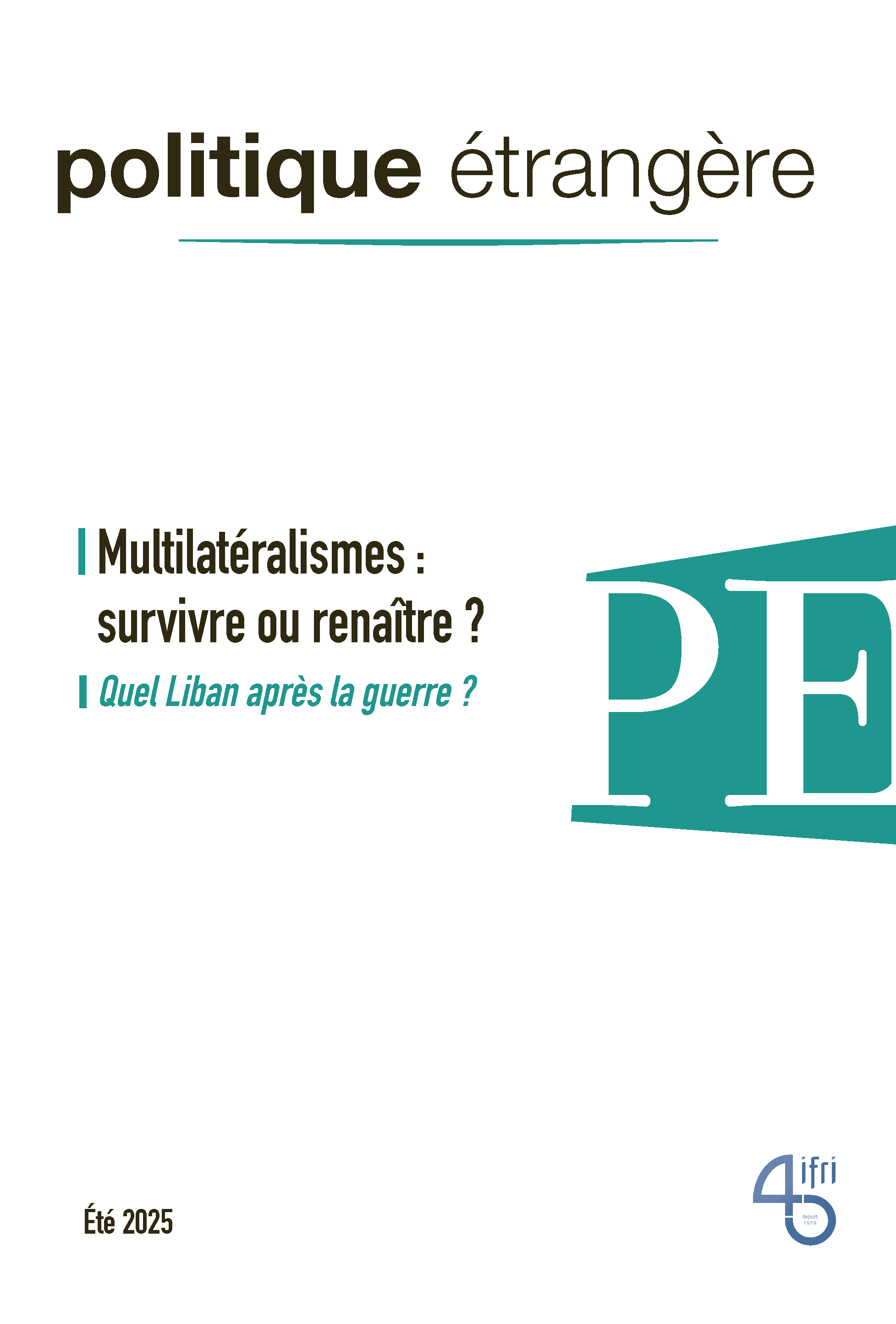
Multilateralisms: Survival or Revival?
The organized multilateralism born out of the Second World War and the Cold War, and revived in the 1990s with the dream of a world of peaceful “global governance,” has fizzled out. The erosion of the large universal frameworks (United Nations, World Trade Organization, arms control and disarmament, international criminal justice, and so on) did not give way to a void but to an excess: a multitude of agreements and schemes that bore witness to the accelerated rebuilding of international relationships. Will institutional anarchy and the open competition of interests visible in uninhibited struggles for power be able to organize themselves around common fundamental interests in the future?
The Caspian Sea as an Emerging Energy Hub : Potentials and Limitations
This report analyzes the prospects of the Caspian Sea region — and its key actors except for Russia and Iran — becoming an important energy hub serving the needs of the European Union (EU).
The European Union's Strategic Test in Georgia
The political crisis brewing in Georgia is of an existential nature for the country. What is at stake is Georgia's future as a democratic and sovereign European nation (EU).
Islam, politique et société en Ouzbékistan. Enquête sur le renouveau religieux de la jeunesse ouzbèke
This study aims to decipher the complex relationships between politics, Islam, and society in Uzbekistan and, more specifically, the dynamics at work in the religious revival of Uzbek youth.
The Next Surge of Conflict in the South Caucasus Is Still Preventable
The tragic exodus of the Armenian population from the Nagorno Karabakh region has closed a chapter in the long saga of conflict between Armenia and Azerbaijan.
Navigating the Storm: ‘OPEC+’ Producers Facing Lower Oil Prices
On 22 June 2018, “OPEC+” oil Ministers (Organisation of Petroleum Exporting Countries members and an ad hoc alliance with several non-OPEC producers, notably with Russia, Kazakhstan and Azerbaijan) will gather in Vienna to discuss the status and future of their production limitation agreement which was initiated in November 2016 and runs until the end of December 2018.

The Ukrainian Crisis or the European Misunderstanding
The crisis in Ukraine seems at first to be the result of the impact of two misunderstandings of Russian and Western approaches.
An Azeri-Turkish deal on gas - a partnership renewed
The package of the Azeri-Turkish gas agreements signed in Istanbul on June 7, 2010, in the presence of President Ilham Aliyev and Prime Minister Recep Erdogan certainly makes cooperation easier in a sector which both parties consider to be strategic. It does not, however, specify all details of the sale and transit of gas (see e.g. EurasiaNet, 7 June). The documents above all have important political significance.

Moscow's Counter-Terrorism Drives the Islamization of the North Caucasus

Russia and Turkey in the Caucasus: Moving Together to Preserve the Status Quo?

Multilateralisms: Survival or Revival?
The organized multilateralism born out of the Second World War and the Cold War, and revived in the 1990s with the dream of a world of peaceful “global governance,” has fizzled out. The erosion of the large universal frameworks (United Nations, World Trade Organization, arms control and disarmament, international criminal justice, and so on) did not give way to a void but to an excess: a multitude of agreements and schemes that bore witness to the accelerated rebuilding of international relationships. Will institutional anarchy and the open competition of interests visible in uninhibited struggles for power be able to organize themselves around common fundamental interests in the future?
The Caspian Sea as an Emerging Energy Hub : Potentials and Limitations
This report analyzes the prospects of the Caspian Sea region — and its key actors except for Russia and Iran — becoming an important energy hub serving the needs of the European Union (EU).
The European Union's Strategic Test in Georgia
The political crisis brewing in Georgia is of an existential nature for the country. What is at stake is Georgia's future as a democratic and sovereign European nation (EU).
Islam, politique et société en Ouzbékistan. Enquête sur le renouveau religieux de la jeunesse ouzbèke
This study aims to decipher the complex relationships between politics, Islam, and society in Uzbekistan and, more specifically, the dynamics at work in the religious revival of Uzbek youth.
The Next Surge of Conflict in the South Caucasus Is Still Preventable
The tragic exodus of the Armenian population from the Nagorno Karabakh region has closed a chapter in the long saga of conflict between Armenia and Azerbaijan.
An Azeri-Turkish deal on gas - a partnership renewed
The package of the Azeri-Turkish gas agreements signed in Istanbul on June 7, 2010, in the presence of President Ilham Aliyev and Prime Minister Recep Erdogan certainly makes cooperation easier in a sector which both parties consider to be strategic. It does not, however, specify all details of the sale and transit of gas (see e.g. EurasiaNet, 7 June). The documents above all have important political significance.

WPC 2024 - Multi-vector Foreign Policies? (Plenary Session)
Friday, December 13, 2024 - 17th edition of the World Policy Conference in Abu Dhabi, United Arab Emirates. Plenary session 2: Multi-vector Foreign Policies?
Support independent French research
Ifri, a foundation recognized as being of public utility, relies largely on private donors – companies and individuals – to guarantee its sustainability and intellectual independence. Through their funding, donors help maintain the Institute's position among the world's leading think tanks. By benefiting from an internationally recognized network and expertise, donors refine their understanding of geopolitical risk and its consequences on global politics and the economy. In 2025, Ifri supports more than 80 French and foreign companies and organizations.










